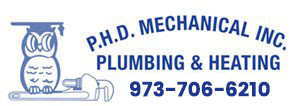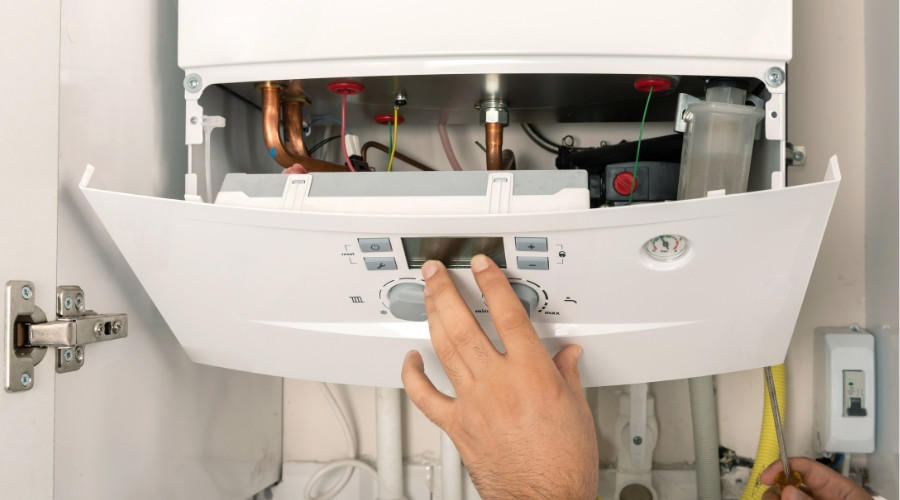HVAC pros in Denville, NJ, discuss boilers, how to maintain their efficiency, and when repairs may be needed.
Rockaway, United States - October 30, 2025 / PHD Mechanical Inc /
Boiler Basics to Help Keep a Home Warm and Efficient
As winter approaches, homeowners may be thinking about the best ways to keep their homes and families comfortable during the colder months. Now is the time to ensure heating equipment is functioning optimally, and to schedule replacement if necessary. This guide to boilers explains how a boiler heating system works, identifies warning signs that indicate boiler repair is needed, and outlines maintenance steps to support long-term efficiency. It also touches on smart choices for boiler installation and when boiler replacement may be the most reliable path to comfort and predictable costs.
What Is a Boiler?
A boiler is a closed-vessel heating system that warms water or creates steam, then circulates that heat through radiators, baseboard heaters, or radiant floors. Unlike forced-air furnaces that move heated air through ducts, a boiler heating system transfers energy through water, often delivering steady, draft-free warmth with quiet operation and minimal air movement.
Hydronic heat offers several advantages. Because water carries heat efficiently, temperatures tend to feel even from room to room without the frequent on/off blasts associated with some air systems. The lack of ductwork can also help reduce dust circulation. Many households value the feel of radiant comfort and the zoning flexibility that hydronic systems can provide—different spaces can be set to different temperatures based on individual needs and schedules.
Results depend on design and installation. A well-planned boiler installation pairs the right unit with properly sized pumps, piping, and controls. For aging systems, boiler replacement can improve temperature balance, trim energy use, and simplify service. With appropriate sizing, modern controls, and attention to building insulation, a boiler heating system can deliver dependable warmth and strong efficiency season after season.
Signs That Boiler Repair Is Needed
 Most systems signal trouble before a full breakdown. Moisture or puddles near the boiler or connected piping point to a leak that requires prompt attention to prevent water damage and corrosion. Abnormal sounds—such as banging, whistling, or persistent gurgling—can suggest trapped air, scale buildup, circulation problems, or components beginning to fail and should be evaluated before the condition worsens.
Most systems signal trouble before a full breakdown. Moisture or puddles near the boiler or connected piping point to a leak that requires prompt attention to prevent water damage and corrosion. Abnormal sounds—such as banging, whistling, or persistent gurgling—can suggest trapped air, scale buildup, circulation problems, or components beginning to fail and should be evaluated before the condition worsens.
Uneven temperatures are another clue. When some rooms remain cool while others feel normal, circulation may be restricted or a valve may be stuck, resulting in reduced heat delivery to certain zones. Rising utility costs without a clear reason often indicate declining efficiency, forcing longer runtimes to reach set temperatures. Intermittent shutdowns, frequent cycling, or radiators that require constant bleeding also indicate conditions that warrant inspection and timely boiler repair.
Safety indicators matter as well. Poor flame quality, erratic firing, or concerns with the flue vent require professional evaluation. Any consistent change in performance—reduced heat output, recurring lockouts, or unusual odors—deserves a check before winter peaks. If repairs become frequent or performance continues to slip despite service, comparing projected costs of ongoing boiler repair with the benefits of boiler replacement can help determine the most economical and reliable path forward.
How to Keep a Boiler Efficient
 Routine boiler maintenance is the foundation of efficient, reliable operation. A professional tune-up typically includes inspecting the heat exchanger, verifying pump performance, testing safety controls, and cleaning components prone to soot or mineral accumulation. Venting pathways are checked for obstructions, system pressure and temperature settings are confirmed, and controls are calibrated to reduce short cycling and improve overall efficiency.
Routine boiler maintenance is the foundation of efficient, reliable operation. A professional tune-up typically includes inspecting the heat exchanger, verifying pump performance, testing safety controls, and cleaning components prone to soot or mineral accumulation. Venting pathways are checked for obstructions, system pressure and temperature settings are confirmed, and controls are calibrated to reduce short cycling and improve overall efficiency.
Between annual visits, a few habits help sustain performance: keep the area around the unit clear for airflow and service access; ensure radiators and baseboards are not blocked by furniture so heat can transfer freely; and watch for early signs of leaks, air in lines, or unusual noises. When radiators develop cool spots, bleeding trapped air can restore even heating. In regions with challenging water conditions, recommended treatment can limit scale and corrosion that undermine efficiency and reduce service life.
Upgrades can further enhance results. Zoning controls and modern thermostats can match heat delivery to actual use, reducing unnecessary runtime. Improvements to insulation and air sealing lessen the building’s heat loss, allowing the boiler heating system to maintain comfort with fewer cycles. When an older unit struggles despite regular boiler maintenance, a right-sized boiler installation with updated controls and circulators can reset the baseline for comfort, safety, and efficiency—often with fewer service calls and more stable monthly costs.
About PHD Mechanical Inc
PHD Mechanical Inc is a leading plumbing and heating company that provides quality workmanship and personalized service in New Jersey. Call them today for great value in boiler repair and replacements in Denville, NJ.

Contact Information:
PHD Mechanical Inc
90 US-46
Rockaway, NJ 07866
United States
Peter Crampton
(973) 706-6210
https://phdmechanicalnj.com/

